- Home
- Sherrilyn Kenyon
The Writer's Guide to Everyday Life in the Middle Ages: The British Isles From 500-1500
The Writer's Guide to Everyday Life in the Middle Ages: The British Isles From 500-1500 Read online
* * *
THE WRITER’S GUIDE TO
Everyday Life
in the
Middle Ages
SHERRILYN KENYON
* * *
THE WRITER’S GUIDE TO EVERYDAY LIFE IN THE MIDDLE AGES
All Rights Reserved © 1995 by Sherrilyn Kenyon
No part of this book may be reproduced or transmitted in any form or by any means, graphic, electronic, or mechanical, including photocopying, recording, taping, or by any information storage or retrieval system, without the written permission of the publisher.
Published by Sherrilyn Kenyon
Originally published by Writer’s Digest Books
DEDICATION
IN MEMORY OF DR. JAMES W. ALEXANDER, WHO ALWAYS HAD TIME FOR AN EAGER STUDENT’S QUESTIONS. HIS WARM ENCOURAGEMENT AND INSIGHTFUL COMMENTS ARE SORELY MISSED.
FOR MY MOTHER, WHO PLACED THAT SILLY SUIT OF ARMOR IN THE DEN AND CAPTURED A YOUNG GIRL’S IMAGINATION.
MY FATHER, WHO WAS MY FIRST KNIGHT IN SHINING ARMOR.
MY BROTHER, STEVE, WHO HAS ALWAYS BEEN MY OWN SPECIAL COURT JESTER.
MY SISTER, CATHE, WHO READ ME ROBIN HOOD UNTIL SHE WAS NEARLY MAD.
AND FOR KEN, WHO HAS BEEN MY SOUNDING BOARD AND DEVIL’S ADVOCATE THESE LAST FEW YEARS, AND WHO HAS NEVER ALLOWED ME TO GET AWAY WITH AN UNFOUNDED CONCLUSION. THANK YOU.
* * *
* * *
ACKNOWLEDGMENTS
DR. VICTORIA CHANDLER, who introduced me to the Haskins Society and who has answered and directed me too many times to count.
DR. TRACY FESSENDEN, who read over sections of the manuscript and made suggestions.
DR. JUDITH KRABBE, who graciously donated her medieval bibliography and whose intelligence, encouragement and smile always inspire me. You are a true role model!
MS. HARMON at Millsaps College Library, who was so kind and prompt at getting the resources I needed.
TANYA ANNE CROSBY, whose invaluable insight and suggestions were worth their weight in platinum.
MY HUSBAND, KEN, who never shuddered at the money I spent on research materials and books.
TO THE MEMBERS OF THE SCA and all the years of fun, experience and education they have provided. May Goddes love blest ye alle!
AND TO ALL THE MEDIEVAL HISTORIANS AND GRAD STUDENTS I have conversed with on various internet topics who have challenged me, expanded my conclusions, and forced me to defend my positions.
ABOUT THE AUTHOR
Sherrilyn Kenyon is the New York Times best-selling author of several series including the Dark-Hunters, Chronicles of Nick and The League. Since 2004, she has placed more than 50 novels on the New York Times list, including several times in the #1 spot. Her Dark-Hunters and Chronicles of Nick series will soon be made into both movies and a television series. Kenyon has taught a number of classes and workshops in medieval history and writing. Her love of things medieval began at age five when her sister read Howard Pyle’s The Merry Adventures of Robin Hood to her. At age sixteen, she joined the Society for Creative Anachronism to which she still belongs.
While an undergraduate at the University of Georgia, she became a member of the Charles Homer Haskins Society for medieval historians. She is also a member of the Archaeological Institute of America and the author of the Character Naming Sourcebook.
TABLE OF CONTENTS
INTRODUCTION
PART ONE:
EVERYDAY LIFE
ONE
FOOD
TWO
CLOTHING
THREE
MEDICINE
FOUR
ECONOMY
FIVE
FAMILY
SIX
WOMEN
SEVEN
FESTIVALS
EIGHT
MUSIC
NINE
WEIGHTS, MEASURES AND CONTAINERS
TEN
VOCABULARY
PART TWO:
RANK & PRIVILEGE
ELEVEN
KINGS
TWELVE
QUEENS
THIRTEEN
TITLES
FOURTEEN
KNIGHTS
FIFTEEN
HERALDRY
SIXTEEN
CASTLES
SEVENTEEN
SERVANTS
PART THREE:
GOD & WAR
EIGHTEEN
THE CHURCH
NINETEEN
SAINTS
TWENTY
CRUSADES
TWENTY-ONE
WEAPONS AND WAR
PART FOUR:
PEOPLE & PLACES
TWENTY-TWO
THE SAXONS
TWENTY-THREE
VIKINGS
TWENTY-FOUR
FRANCE AND NORMANDY
TWENTY-FIVE
SCOTLAND
TWENTY-SIX
WALES
TWENTY-SEVEN
IRELAND
APPENDIX
INDEX
INTRODUCTION
Madame, that throgh your newfangelnesse
Many a servaunt have put out of your grace,
I take my leve of your unstedfastnesse
For wel I woot, while ye have lyves space,
Ye kan not love ful half yere in a place;
To newe thing your lust is ay so kene;
Instede of blew, ye may wel were al grene.
So wrote Geoffrey Chaucer in his poem “Against Women Unconstant.” Middle English is a fascinating language. When you first hear it, it sounds remarkably foreign. Indeed, I could just as easily be quoting:
Une aventure vus dirai
Dunt li Bretun firent un lai.
Laustic ad nun, ceo m’est vis,
Si l’apelent en lur païs;
Ceo est russignol en franceis
E nihtegale en dreit engleis
Which is Marie de France’s twelfth century French Lai Laüstic. In hearing the languages, you’ll notice they have a great deal in common. After all, with the Norman invasion of 1066, the Germanic Old English was altered forever. Yet even the Medieval French has some holdovers from its Germanic roots. Note the umlauts in the excerpt from Laüstic.
Both languages are a bridge from their original roots to the ones we know today. This is one reason why Middle English fascinates me so. After all, it links modern English and Old English.
Littered throughout Middle English, we find Germanic pronunciations and spellings. And littered in modern English, we find a number of Old English words that survive intact with only a slight pronunciation difference: cwene (queen), cyng (king), lust, ken, wisdom, tempi (temple) and lytel (little).
So why this focus on language? After all, no one will be writing a book in Old English, Middle English or Medieval French.
Simple. At first glance, the past, much like the above languages, looks complicated, almost unintelligible. Yet if you look at it in pieces as opposed to the whole, what you find are things we do know, things we do understand such as the Old English words above.
Richard Barber in Henry Plantagenet wrote that:
Eight centuries separate us from the age of Henry II. With each year’s passing our links with the Plantagenet’s times grow fewer and more slender, and the obstacles to understanding the thoughts and ways of a man living in his circumstances becomes correspondingly greater.
Where there are historians who concur, I am of the opposing school. True, eight centuries do separate us, but eight hundred years on an evolutionary scale amou
nts to a microsecond on a twenty-four-hour clock – an amount of time so infinitesimal as to be ridiculous.
Just as we can look back on the language and recognize it, so too can we not only understand, but sympathize with Henry II and his situation. We all know what it’s like to have something valuable taken from us. Those who run corporations or small businesses, or farmers who have had others take what they’ve built, know exactly what it’s like to lose important property. Though the above is not a kingdom, we can still understand Henry’s driving need to retake his promised lands from Stephen.
And the events of his later life are just as understandable. Most parents can relate to having children rebel against them. This happens every day, especially in cases of powerful or rich families where the children are eager for their inheritance.
Or what about Eleanor siding with her children against Henry? Again, this is not unusual. So wherein lies this mysterious element that prevents us from understanding Henry’s circumstances and thoughts?
Just like us, he was a human being; he lived, he fought, he struggled, he died.
It is what I term the fallacy of the human ego that makes us look to the past and proudly proclaim our superiority. Have we truly changed so much? Is there a shred of truth to the thought that no other past generation traveled the ground we travel now?
No. In fact, this argument is the same one voiced by teenagers who refuse to believe their parents ever had a youth, ever faced peer pressure or being stood up.
By reading the literature and letters of the medieval period, a researcher is quickly struck by parallels. Let’s examine for a moment two twelfth century letters translated by Catherine Moriarity:
To their dear and respected parents M. Marte, knight and M. his wife, M. and S., their sons, send greetings and filian obedience.
This is to inform you that, by divine mercy, we are living in good health in the city of Orleans and are devoting ourselves wholly to study, mindful of the words of Cato, ‘To know anything is praiseworthy,’ etc. We occupy a good and comely dwelling, next door but one to the schools and market place, so that we can go to school every day without wetting our feet. We have also good companions in the house with us, well advanced with their studies and of excellent habits – an advantage which we well appreciate, for as the Psalmist says, ‘With an upright man, thou wilt show thyself upright’ etc. Wherefore lest production cease from lack of material, we beg your paternity to send us by the bearer, B., money for buying parchment, ink, desk, and the other things which we need, in sufficient amount that we may suffer no want on your account (God Forbid!) but finish our studies and return home with honour. The bearer will also take charge of the shoes and stockings which you have to send us, and any news as well.
I know my father relates to that letter. Instead of quoting Psalms, I used terms like Pseudo-Isodorian Decretels and quoted Plato to show him his money wasn’t being wasted. Indeed, I think any student or parent can relate to the old, “But Mom, Dad, everyone else has a new notebook! How can I keep up with them if all I have is my ratty one from last year?”
And like most parents who lose patience with their children who seem to idle a bit, here’s another letter. This one is from Besancon to his son:
It is written, ‘He also that is slothful in his work is brother to him that is a great waster.’ I have recently discovered that you loved dissolutely and slothfully, preferring license to restraint and play to work and strumming the guitar while the others are at their studies, whence it happens that you have read but one volume of law while your more industrious companions have read several. Wherefore I have decided to exhort you herewith to repent utterly of your dissolute and careless ways that you may no longer be called a waster and that your shame may be turned to good repute.
Again, I think most people can relate to this message!
So how is it that myths and misconceptions get started? Why do people often say, “Oh, how medieval!” as if that is the most backwards thing anything can be?
Well, there is a lot of history that does separate us from the Middle Ages, and sometimes it’s easy to throw all history into one category and to draw generalizations where generalizations should not be drawn. If we in our modern twentieth century had to fight for women’s rights, then it is only natural that we are the first to have them.
Actually, women of the past had far more authority than most women today. For example, can an average woman today hold a legal court and expect her sentence to be carried out? Can an average woman lead an army? Can an average woman hire or fire her children’s teachers? Of course not. Yet these are typical duties expected of noblewomen, and in certain cases, middle-class women, in the medieval period.
But what of the laws and church writings that said women had to subjugate themselves to their husbands? Let’s take a moment to look at our own laws. How many of us pay attention to jay-walking ordinances? Speeding laws? And even with the stiff penalties against driving while intoxicated, how many people every day drive under the influence of some drug? Medieval people were no different. Some obeyed the laws, some didn’t, and some didn’t even know what the laws were. An example of this comes from Patricia Orr’s research on the years 1194 to 1232. She came across a reference that says no woman could bring a case to a royal court unless it involved personal injury to herself or the death of her husband. Yet only three cases were ever dismissed on these grounds, while literally hundreds of others were heard regarding everything from theft to murder.
Where it is true that we will never know the exact truth of how women were treated, I think we can draw a close parallel with our own society. Some women were loved and treasured and some were horribly abused. And just as some were abused, others were abusers. There are a number of cases of women who neglected and abused their husbands and children.
And though there were laws granting the husband the right to punish his wife, he was never supposed to hit her in anger or while drinking. As disturbing as this law may be to some, I hasten to remind everyone that this view can still be found in modern society. In fact, I heard a female caller not long ago on a local talk show say that she thought a husband had a right to punish his wife if the wife deserved it, and this caller was in her twenties.
So why are there so many discrepancies out there? Why do we pick up J.W. Thompson’s Economic and Social History of the Middle Ages and read that no woman was ever a peddler in the Middle Ages? Then we pick up Maryanne Kowaleski and Judith M. Bennett’s article, “Crafts, Gilds, and Women in the Middle Ages: Fifty Years After Marian K. Dale,” which says there were a number of women who peddled for a living?
One reason can be found in the dates. Thompson’s book is from 1952, whereas Kowaleski and Bennett’s article was written in 1989. In thirty years, a lot of important research has been done. New documents and archaeological finds have completely rewritten certain historical beliefs.
In 1961 when Sidney Painter died, his lifelong dream had been to research and write on medieval marriage, a much neglected subject in those days. A few years after that, Georges Duby took the torch and produced two books and a number of articles on the subject. Today we have a larger number of books, papers and articles to draw from.
For this reason, I strongly advise researchers to focus on newer books. True, there is a great deal of value to be found in older works such as those by G.C. Coulton, F.W. Maitland, Henri Pirenne and others. But older books also contain outdated research and thoughts such as Henri Pirenne’s statement that the Germanic hordes did not destroy the Roman Empire, that “they barbarized it, but they did not consciously germanize it.” Though there is some truth to this, the bulk of the sentiment has long since been cast aside. Most modern historians are quick to point out that the hordes had no interest in preserving Roman tradition. Instead they wanted to partake of the riches and advantages of being citizens, but they wanted their own language and laws.
So where does this leave a modern writer, someone who doesn’t have time to read
every book written on the Middle Ages? Actually, the discrepancies and opposing arguments offer a writer great fodder for a story. Take for a moment Karen Armstrong’s theory that the Children’s Crusade wasn’t a group of children who left for the Holy Land where they either died or were sold into slavery, but was in fact a group of peasants who protested in the countryside for one summer. Depending on which theory a writer uses, there are multiple story line possibilities.
There is nothing easy about the Middle Ages. It was as complex a time as the years we now live in. Society constantly shifted, as did laws, fashions and beliefs. Indeed, many things we now take for granted were formed in the medieval period: purgatory (thirteenth century), marriage as a sacrament (twelfth century), surnames (developed all throughout the period), universities (tenth century), hospitals and more. Even ninety percent of all the classical writings that survive today come down to us only through medieval manuscript copies.

 Styxx
Styxx Inferno
Inferno Dark Side of the Moon
Dark Side of the Moon Infinity
Infinity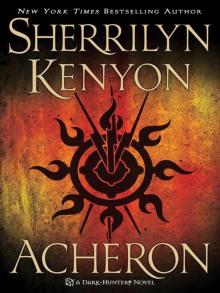 Acheron
Acheron Dead After Dark
Dead After Dark Playing Easy to Get
Playing Easy to Get Second Chances
Second Chances One Silent Night
One Silent Night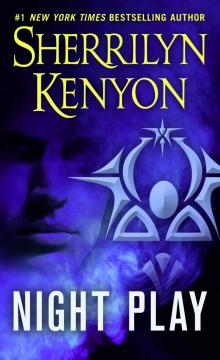 Night Play
Night Play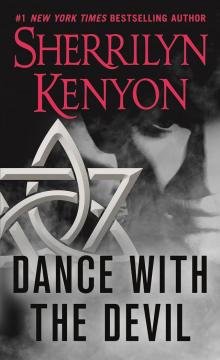 Dance With the Devil
Dance With the Devil Unleash the Night
Unleash the Night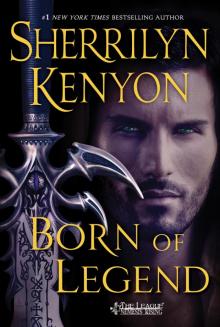 Born of Legend
Born of Legend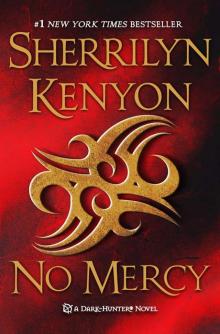 No Mercy
No Mercy Fire Bound
Fire Bound Seize the Night
Seize the Night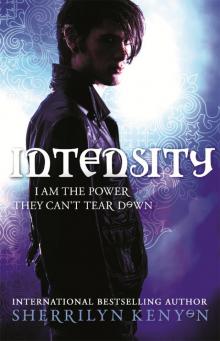 Intensity
Intensity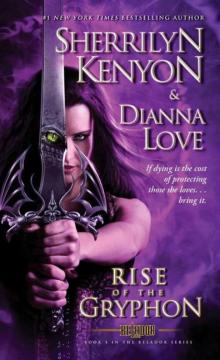 Rise of the Gryphon
Rise of the Gryphon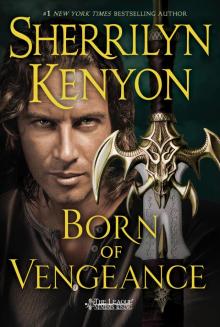 Born of Vengeance
Born of Vengeance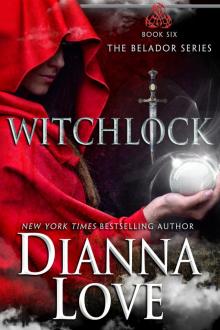 Witchlock
Witchlock Retribution
Retribution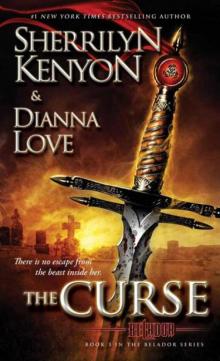 The Curse
The Curse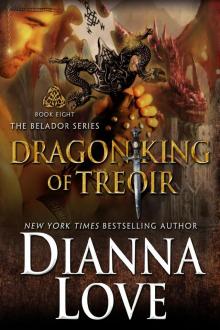 Dragon King of Treoir
Dragon King of Treoir The Dream-Hunter
The Dream-Hunter Cloak & Silence
Cloak & Silence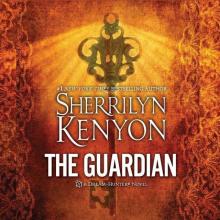 The Guardian
The Guardian Sins of the Night
Sins of the Night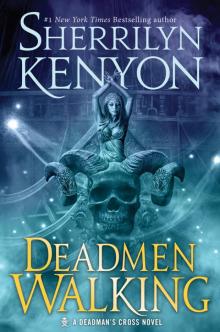 Deadmen Walking
Deadmen Walking Upon the Midnight Clear
Upon the Midnight Clear Dream Chaser
Dream Chaser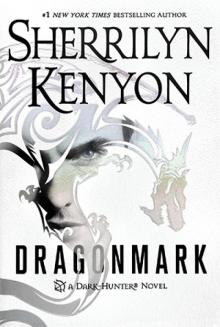 Dragonmark
Dragonmark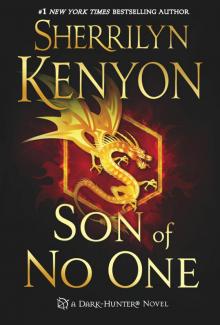 Son of No One
Son of No One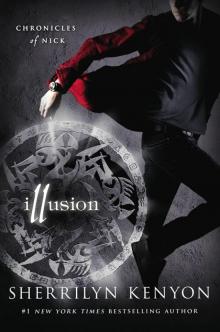 Illusion
Illusion In Other Worlds
In Other Worlds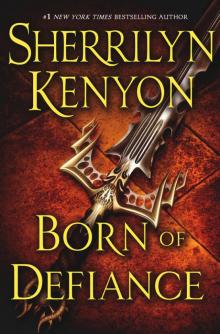 Born of Defiance
Born of Defiance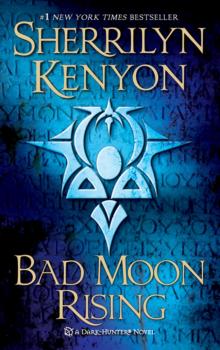 Bad Moon Rising
Bad Moon Rising Born to Be Bad
Born to Be Bad Born of Ice
Born of Ice Bad Attitude
Bad Attitude A Dark-Hunter Christmas
A Dark-Hunter Christmas Dream Warrior
Dream Warrior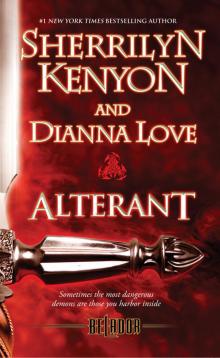 Alterant
Alterant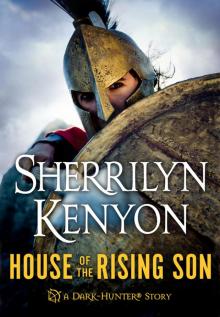 House of the Rising Son
House of the Rising Son Instinct
Instinct Stygian
Stygian Devil May Cry
Devil May Cry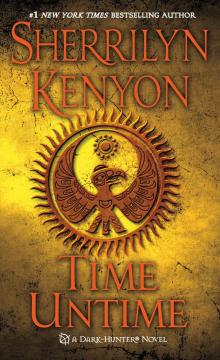 Time Untime
Time Untime Dark Bites
Dark Bites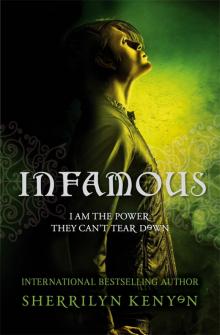 Infamous
Infamous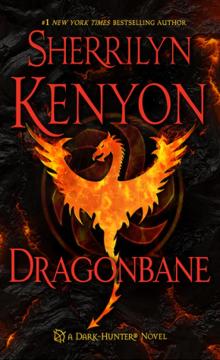 Dragonbane
Dragonbane Night Embrace
Night Embrace Kiss of the Night
Kiss of the Night Born of Fire
Born of Fire Invincible
Invincible Dragonsworn
Dragonsworn Born of Night
Born of Night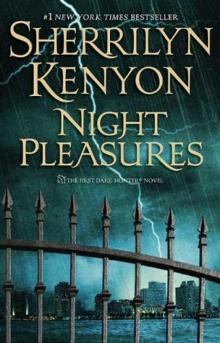 Night Pleasures
Night Pleasures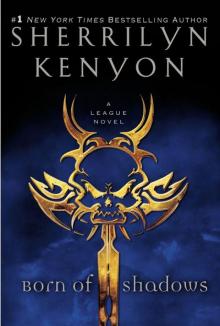 Born of Shadows
Born of Shadows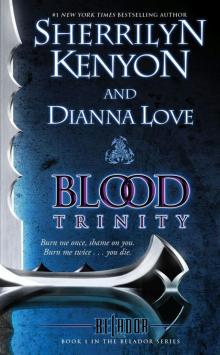 Blood Trinity
Blood Trinity Deadly Promises
Deadly Promises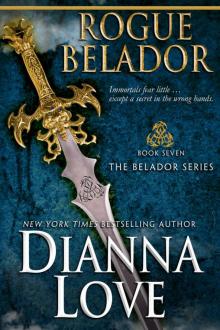 Rogue Belador
Rogue Belador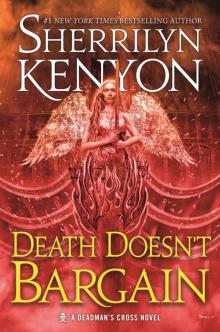 Death Doesn't Bargain
Death Doesn't Bargain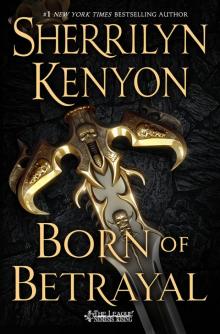 Born of Betrayal
Born of Betrayal At Death's Door (Deadman's Cross Book 3)
At Death's Door (Deadman's Cross Book 3) Belador Cosaint
Belador Cosaint Fire and Ice
Fire and Ice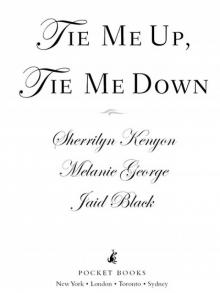 Tie Me Up, Tie Me Down
Tie Me Up, Tie Me Down Big Guns Out of Uniform
Big Guns Out of Uniform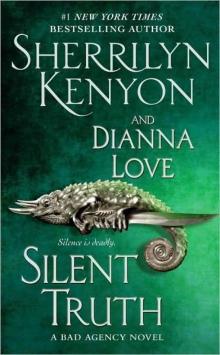 Silent Truth
Silent Truth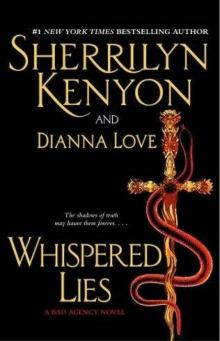 Whispered Lies
Whispered Lies Phantom in the Night
Phantom in the Night![[BAD 07] - Silent Truth Read online](http://i1.bookreadfree.com/i/03/17/bad_07_-_silent_truth_preview.jpg) [BAD 07] - Silent Truth
[BAD 07] - Silent Truth Dark Bites (Dark-Hunter World)
Dark Bites (Dark-Hunter World) Stygian (The Dark-Hunter World Book 28)
Stygian (The Dark-Hunter World Book 28) The League 3: Paradise City
The League 3: Paradise City Until Death We Do Part
Until Death We Do Part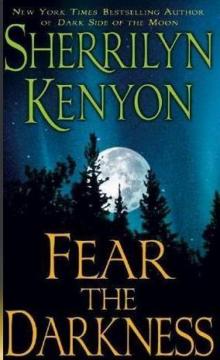 Fear the Darkness
Fear the Darkness Fantasy Lover
Fantasy Lover![Insurrection [Nevermore] Read online](http://i1.bookreadfree.com/i1/03/30/insurrection_nevermore_preview.jpg) Insurrection [Nevermore]
Insurrection [Nevermore]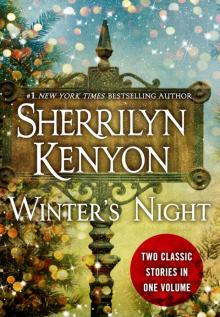 Winter's Night
Winter's Night Dead After Dark_Shadow of the Moon
Dead After Dark_Shadow of the Moon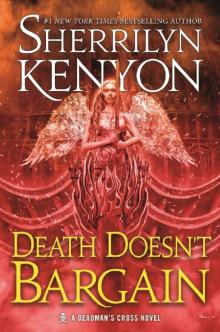 Death Doesn't Bargain: A Deadman's Cross Novel
Death Doesn't Bargain: A Deadman's Cross Novel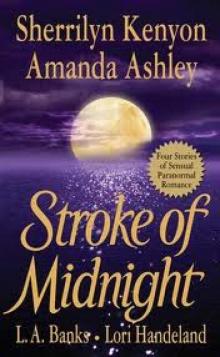 Winter Born
Winter Born Dragonswan
Dragonswan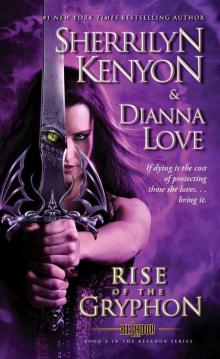 Rise of the Gryphon (Belador #4)
Rise of the Gryphon (Belador #4) Infinity: Chronicles of Nick
Infinity: Chronicles of Nick The League 1: Born Of The Night
The League 1: Born Of The Night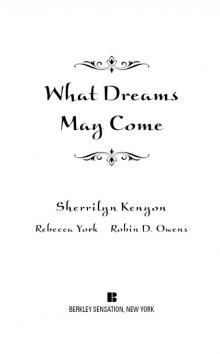 What Dreams May Come (Berkley Sensation)
What Dreams May Come (Berkley Sensation) The Beginning
The Beginning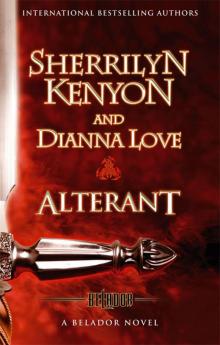 Alterant: Belador Code Series: Book Two
Alterant: Belador Code Series: Book Two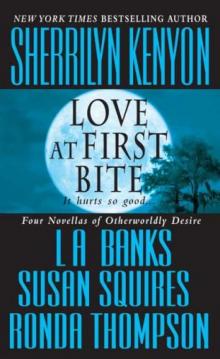 Love At First Bite
Love At First Bite Styxx (DH #33)
Styxx (DH #33)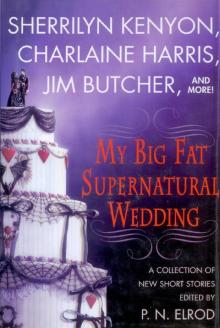 A Hard Day's Night-Searcher
A Hard Day's Night-Searcher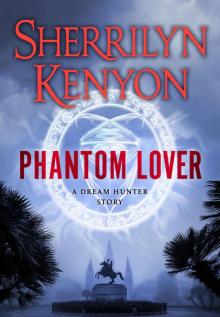 Phantom Lover
Phantom Lover Cloak & Silence (The League)
Cloak & Silence (The League)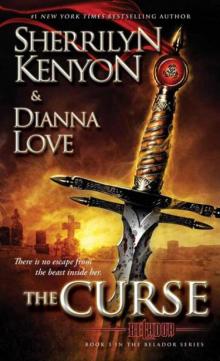 The Curse (Beladors)
The Curse (Beladors)![[Dark Hunter-Were Hunter 2] - Night Play Read online](http://i1.bookreadfree.com/i2/04/08/dark_hunter-were_hunter_2_-_night_play_preview.jpg) [Dark Hunter-Were Hunter 2] - Night Play
[Dark Hunter-Were Hunter 2] - Night Play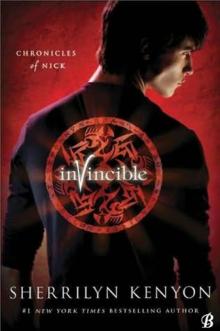 Chronicles of Nick 02 - Invincible
Chronicles of Nick 02 - Invincible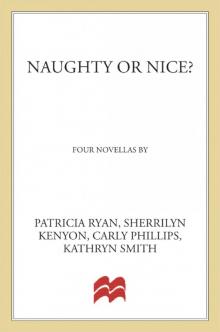 Naughty or Nice?
Naughty or Nice? BAD to the Bone
BAD to the Bone Stroke of Midnight
Stroke of Midnight![Dragonbane_[AN_SK] Read online](http://i1.bookreadfree.com/i2/04/12/dragonbane_an_sk_preview.jpg) Dragonbane_[AN_SK]
Dragonbane_[AN_SK] Man of My Dreams
Man of My Dreams